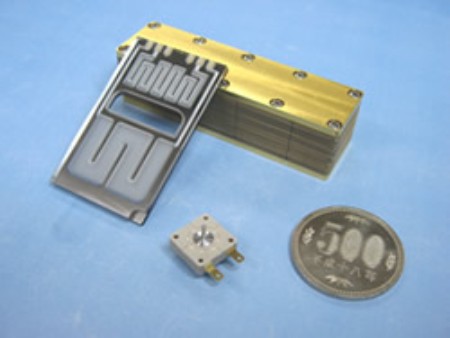Fuel cells come of age at last
Age of the fuel cell is almost upon us

Pretty much every observer of the technology industry over the last few years has agreed we're on the verge of a major breakthrough in the way we power our portable gadgets, such as laptop PCs, cameras and mobile phones, that will almost eliminate the dreaded dead-battery syndrome.
The reason for such confidence is the increasing number of fuel cells that companies are promising to market within two or three years.
Fuel cells come in many varieties but all share the same benefits - they run on a volatile fuel, such as methanol or ethanol, and are 'recharged' simply by squirting a few cc of the fuel into them from disposable refills. This eliminates the need to plug gadgets into the mains for extended periods while they recharge.
One of the latest prototypes was on show at the 2006 Fuel Cell Seminar in Hawaii last month - a tiny methanol-powered cell from Casio . The demonstration of the 27.2 x 46 x 2.8mm cell was used to power a digital camera but could easily be adapted to run a laptop PC. Casio promises consumer products during 2007.
Concept PC
Elsewhere, Korea's LG has been showing off a notebook PC that uses a methanol fuel cell for a battery life measured in dozens of hours per refill. The 'ebook' concept PC also has an organic light-emitting diode (OLED) screen instead of an LCD. This allowed LG's designers to remove the frame from around the screen and provide a larger viewable area.
Other innovations include a touch-sensitive OLED panel as a keyboard, which is similar to the music-control buttons on the same company's Chocolate phone . The company says it would like to market the ebook but that high costs make it prohibitive for now. J Mark Lytle
Sign up for breaking news, reviews, opinion, top tech deals, and more.
Tech.co.uk was the former name of TechRadar.com. Its staff were at the forefront of the digital publishing revolution, and spearheaded the move to bring consumer technology journalism to its natural home – online. Many of the current TechRadar staff started life a Tech.co.uk staff writer, covering everything from the emerging smartphone market to the evolving market of personal computers. Think of it as the building blocks of the TechRadar you love today.